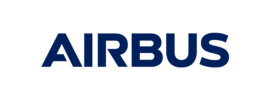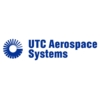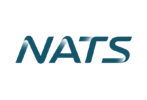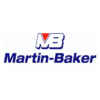
AdaCore + Avionics
Modern avionics platforms, from commercial jets to next-gen air mobility, rely on complex, software-driven functionality. Autopilot, flight controls, engine management, navigation, and more are safety-critical domains where failure is not an option. But as these systems grow more interconnected and long-lived, development teams face mounting certification, security, and sustainability challenges.
Where Our Technology Makes a Difference
Flight Control & Navigation
At the core of any aircraft’s operational integrity are its flight control and navigation systems. These include components like flight control logic, autopilot, fly-by-wire interfaces, inertial navigation units, and air data computers. Together, they ensure stable, precise, and responsive aircraft behavior under both manual and automated operation. Software in these systems must meet the highest levels of assurance, as failures can directly compromise flight safety. Robust, certifiable development tools are essential to delivering the required reliability and determinism.
Aircraft Management & Operations
Modern avionics platforms must efficiently manage a wide array of operational subsystems - from engine control and fuel management to electrical power distribution and environmental control. These systems contribute to the aircraft's overall efficiency, safety, and passenger comfort. Their software must operate reliably across varied conditions and remain maintainable throughout long operational lifespans. Supporting these systems requires tools and infrastructure that can handle real-time constraints, hardware diversity, and the long-term evolution of software architectures.
Communication & Surveillance
In today’s interconnected aerospace ecosystem, avionics systems must reliably handle communication, situational awareness, and traffic coordination. Applications such as radio communication systems, surveillance and ADS-B, weather radar, and avionics data networks play critical roles in both civilian and defense contexts. These systems must meet strict real-time and cybersecurity requirements, particularly as connectivity increases. Developing such systems demands technology stacks that enable high assurance and facilitate certification while maintaining strong defenses against cyber threats.
Safety & Mission Systems
Ensuring operational integrity and mission success depends on safety-critical applications such as cockpit display systems (EFIS), health monitoring and built-in test systems, flight data recorders (FDR/CVR), and mission-specific avionics. These applications often integrate deeply with other systems and must operate flawlessly for the lifetime of the aircraft. Their complexity, coupled with the need for certifiability and maintainability, places a premium on using tools that support traceability, formal verification, and long-term support—especially as platforms evolve over time.
Enduring Safety Across Millions of Flights
Platform Diversity
Platform diversity makes portability and maintainability difficult across generations of hardware and RTOS environments.
Industry Compliance
DO-178C compliance, particularly at DAL-A, requires certified libraries and qualified tools such as MC/DC code coverage, rigorous development flows, and verifiable results—driving significant cost and complexity.
Cybersecurity
Avionics software runs in an open environment, which makes it susceptible to threats. Therefore, it needs to be protected from third-party attacks.
Longevity
Long service lifespans (20+ years) require software to be maintained on legacy platforms - often using discontinued architectures or homegrown OSes.

All-in-One Software Developer Toolkit
AdaCore provides compilation, verification, and certification-ready tools for Ada, C/C++, and Rust, supporting platforms from bare-metal embedded systems to full server environments. Integrated testing and analysis, combined with compliance with industry standards, ensure robust, mission-critical software development.
Development
Ada, C/C++ and Rust
Support is provided for a wide set of languages relevant to embedded and safety-critical software development:
- Ada 83, 95, 2005, 2012 and 2022
- C89 to C18 and C++98 to C++20
- Rust starting with 1.77.2
DevOps
All tools provided for developers are DevOps-ready and can be integrated into off-the-shelf or custom pipelines.
Customizable Runtimes
Language runtimes can be customized to limit the number of code they contain, from full capability to minimized resource footprint and certification costs, allowing them to be used on large server systems as well as resource-constrained environments.
LLVM and GCC
AdaCore toolchains are industrial-grade versions of the GCC and LLVM compilers, allowing ease of integration in widespread and known environments and pipelines.
Verification
Static Analysis for Ada
Static Analysis technologies is provided for all version of Ada. It covers area such as:
- Code issue scanning
- Cybersecurity weaknesses detection
- Bug identification
- Metric computation
Static Analysis for C/C++
Static Analysis technologies is provided for C/C++. It covers area such as:
- Code issue scanning
- Cybersecurity weaknesses detection
- Bug identification
- Coding standard compliance, including MISRA-C and MISRA-C++
- Metric computation
Dynamic Analysis
Dynamic Analysis covers Ada, C/C++ and Rust, addressing various areas:
- Unit Testing
- Structural Code Coverage up to MC/DC
- Code Fuzzing
Compliance
DO-178C
The AdaCore toolchain meets requirements of DO-178 certification requirements. In particular:
- Embedded language run-time libraries are certified up to DAL-A
- Structural Coverage and coding standard checkers are qualified TQL-5
- A compiler traceability study can be provided to address DAL-A coverage requirements
- Software can be actively supported over decades, provided with known-problem monitoring, issues impact analysis and targeted toolchain fixes
Software Bill of Material
AdaCore produces Software Bills of Materials (SBOMs) for all AdaCore products supplied in the industry-standard SPDX format, allowing automated incorporation into customers’ vulnerability management and reporting systems.

Elevate Safety with MISRA C/C++, Rust, and SPARK
SPARK, Rust and MISRA C/C++ offer a gradient of possibilities to approach safety. These are not just about different languages, they are about shifting developers mindset and process when approaching highest level of reliability.
A formally verifiable subset of Ada that enables mathematical proof of correctness. Eliminates entire classes of errors, providing the highest level of assurance for critical software.
A modern systems language with ownership and borrowing to enforce memory safety. Reduces runtime risks, though concurrency and “unsafe” code require careful handling.
Widely used industry guidelines that mitigate many of C/C++’s inherent risks. Helps structure development, but safety depends on process discipline.
Powering the Widest Range of Platforms in the Industry
We support over one hundred off-the-shelf and custom platforms across the industry.

Streamline Your DO-178C Workflow
Discover how AdaCore technologies support DO-178C certification requirements.
Trusted Across the Industry
Over one hundred companies across high-integrity industries have chosen our technology to meet the highest standards of safety, reliability, and performance.





















